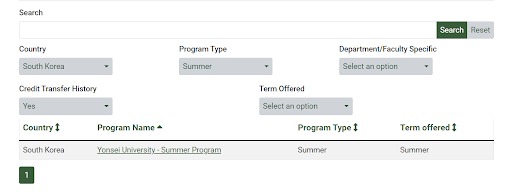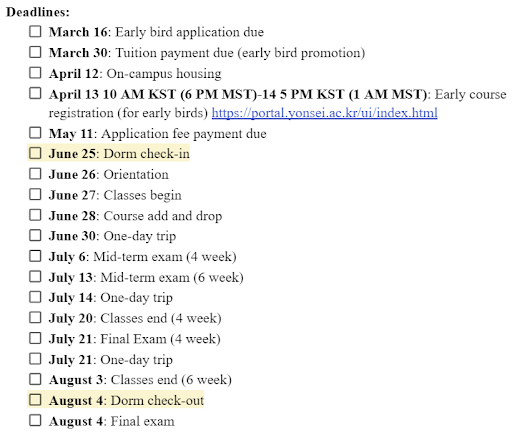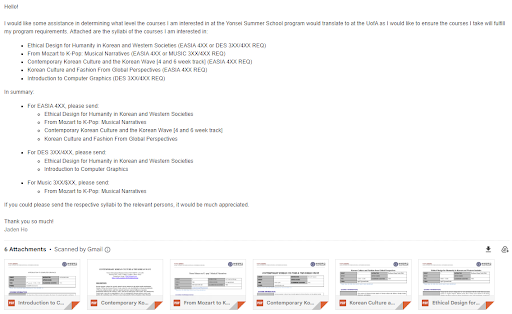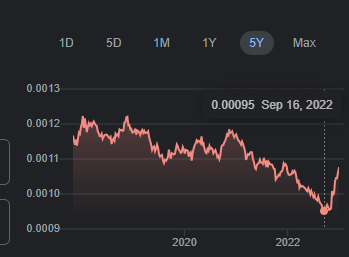Interested in participating in an study abroad program but don’t know where to start? Going on a trip is never easy: there’s an endless number of factors to consider. However, with a well-thought-out plan, having a smooth trip will be much easier.
‘But Jaden, I don’t know where to start!’
And that’s why I’m here to cover some of the basics you should consider when planning your study abroad.
First, what kind of study abroad program do you want to do? Start by asking yourself: when can I go? where can I go? and what do I want out of it? This is all dependent on your situation but whatever your reason is, make sure to take some time to think about why you want to go on an study abroad program. With that in mind, go to the U of A’s Education Abroad Program to help narrow down your search. Check out the programs and pay attention to two major factors: courses/activities you’re interested in and prices. It’s important to take courses worth your time but also your money because, as one might expect, doing a study abroad program can be extremely expensive.

The Education Abroad Program Finder: For me personally, I had required courses in Fall and Winter, leaving me with summer, I wanted to go to East Asia and I wanted to receive transfer credits while exploring the culture of the country I planned to move to.
With that exploration, it’s time to start planning. I would recommend using a Google Doc to keep track. At the top of your document, I recommend writing a running to-do list: you can quickly dump any questions or tasks you need to complete into the doc here.
For deadlines, I would write out the ones set by the university you plan to go to (eg. starting and ending dates, course registration deadlines, tuition payment deadlines, accommodations deadline, early bird deals, etc.) and the U of A’s deadlines (mainly, the registration deadline for the semester you’re going in and Education Abroad scholarships). Missing deadlines will effectively end your opportunity to do the study abroad program, so make sure you stay on top of them and start early to give yourself ample time to prepare.

The deadlines for Yonsei Summer School. I also highlighted specifically the dates when the program itself begins and ends.
When dealing with transfer credits, have a screenshot of the class hours as you look through courses and compile a list of courses you’re interested in divided by period. Universities usually provide the syllabus, so skim through it and see if it piques your interest. I would also check for three major things: what would it transfer to in the U of A are there final exams; and do you have to purchase textbooks? The latter two are more self-explanatory; while you are there to study, you also want to enjoy your time so finding courses that strike a balance without being overly difficult is essential, and, well, textbooks are expensive. Determining the U of A’s equivalency, however, can be more difficult. You can generally make broad predictions based on course material and the type of final assessment (eg. a class with a 5-page final paper likely would not qualify as a 400-level course). I recommend getting in contact with your faculty’s undergraduate office and sending them an e-mail detailing what you would like the courses to transfer as and attaching the syllabi for the classes, which your advisor would then send to the relevant departments for evaluation.

The e-mail I sent to the arts undergraduate advisor. As you can see, I tried to include as many details as possible for the ease of the advisor and included all the syllabi for evaluation purposes.
The Education Abroad portal provides a basic framework for planning for your budgeting so I’ll only go over some important points to take into consideration. When exploring options for housing, rather than jumping to dorms, also check out Airbnbs (make sure to change the region settings) as there can be more affordable options. Check for flights as soon as possible, and don’t feel limited by the length of the program itself: you may find better prices if you go earlier or leave later. Avoid flying at the end of a semester or during popular vacation dates as usually a lot of people are going home and ticket prices skyrocket. When finding ideas for leisure, check out Tiktok as usually, they’ll give you a more “real” take and cover lesser-known spots you might miss on Google. Check your essentials: visas, vaccinations, and such, and pack the minimum as you want space for your shopping. Finally, check for trends in exchange rates to the time when you can get the biggest bang for your buck.

An example is for the exchange rates between CAD and KRW, there appears to be a trend of dips in Fall and Spring. Thus, it would be best to exchange for KRW during those periods of time.
Finally, scholarships can be divided into broad categories: Education Abroad, U of A, Partner University, and Miscellaneous. The Education Abroad Program has scholarships that you can apply for, such as individual awards and GSO, through their portal.
U of A scholarships cover those outside of the Education Abroad Program, such as the regular Students Awards (which you apply for through the Students Awards portal) UASU awards, (applied through the UASU portal), and faculty and department-specific awards, which you can look up through the respective sites according to your program. Your partner university will also likely have scholarships available for students, so be on the lookout for that. And finally, miscellaneous, which includes scholarships available through your parents' employment, your local community scholarships, and generally scholarships you find on Google. This should provide a good starting point in getting the financial support you need to subsidize the expenses. Maintain a good GPA, be involved in your community and get support from someone to help proofread any letters you need to submit, and you should be golden!

